About
Science Advisory Panel
BCPP’s work is grounded in the latest scientific information on the complex relationships between environmental factors and breast cancer. Our Scientific Advisory Panel members advise our evaluation of new scientific data and plan new initiatives based on the latest scientific evidence. Our expert science advisors were invited to join the Panel in recognition of their important work in the field of environmental health related to environmental risks for breast cancer and of their commitment to the mission of Breast Cancer Prevention Partners.

Sarah Janssen, MD, PhD, MPH, Science Advisory Panel Co-Chair
Staff Physician, Kaiser Permanente, Occupational Medicine Department Assistant clinical professor, University of California, San Francisco Sarah Janssen is a staff physician at Kaiser Permanente’s Occupational Medicine Department. She is also Assistant Clinical Professor at UCSF School of Medicine, Division of Occupational and Environmental Medicine and Department of Urology. Her work has included research on flame retardants, cosmetics, plastics and plasticizers, breast cancer and threats to adult reproductive health and child development.
Read More
Janssen is board-certified in preventive medicine, with a subspecialty in occupational and environmental medicine. She completed her MD and PhD in molecular and integrative physiology at the University of Illinois, Urbana-Champaign in 2001, and her Master of Public Health at the University of California, Berkeley in 2005. Janssen is the author of numerous peer-reviewed publications and book chapters and served as senior scientist for the Natural Resources Defense Council (NRDC) from 2006 to 2013. She was honored with a Science Hero Award by Breast Cancer Prevention Partners in 2010.
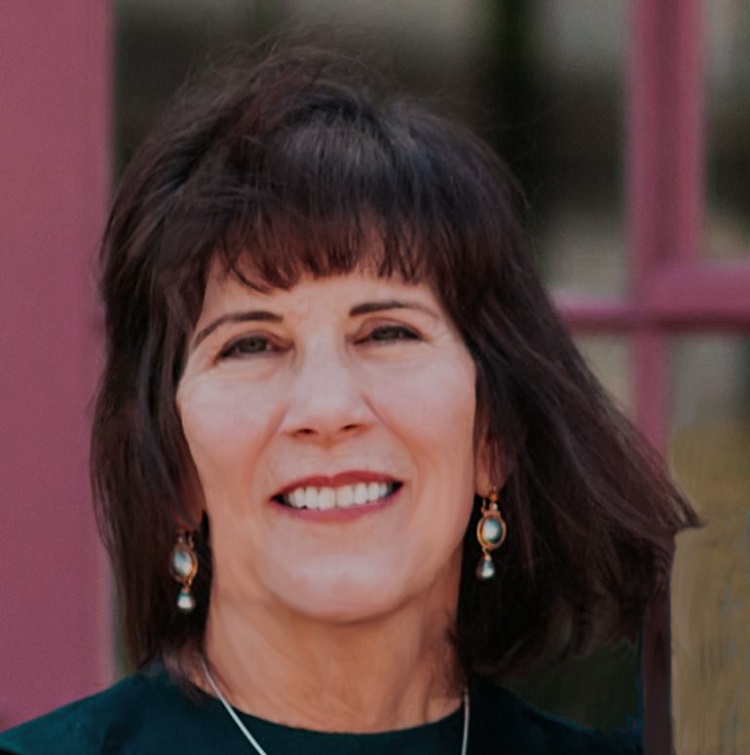
Laura Fenster, PhD, MPH, Science Advisory Panel Co-Chair
Laura Fenster has extensive experience in conducting epidemiologic studies of the relationship of environmental chemicals to fertility, birth outcomes, neuro-behavioral development, and semen quality. She recently retired after 30 years as an epidemiologist in the California Department of Public Health, Division of Environmental and Occupational Disease Control.
Read More
She has been principal or co-investigator on a number of collaborative studies of occupational and environmental exposures and reproductive outcomes, including investigations of the reproductive health effects of endocrine disruptors. She received a PhD in epidemiology and MPH in health education from the University of California at Berkeley. She previously served on the California Breast Cancer Research Program Council.
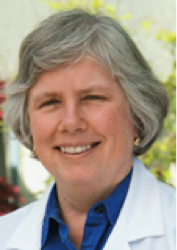
Lisa Bailey, MD
Breast surgeon and co-director of the Breast Cancer Program at the Alta Bates Summit Medical Center Dr. Lisa Bailey has been in practice in the East Bay since 1982, and specializes in the care of patients with breast cancer and other breast health issues. She completed her degree in Mathematics at Northwestern University in 1971, and went on to her MD degree at Northwestern University Medical School in 1975.
Read More
She completed her General Surgery residency at the McGaw Medical Center of Northwestern University Medical School, and her Surgical Oncology Fellowship at Evanston Hospital, in 1981. Dr. Bailey is past president and member of the Board of Directors of the California Division of the American Cancer Society, and currently chairs their Breast Cancer Taskforce. She is a member of the Commission of Cancer of the American College of Surgeons, and also a Governor of the American College of Surgeons. She is a Co-Founder and the Medical Director of the Carol Ann Read Breast Health Center, and a Co-Director of the Breast Cancer Program at the Alta Bates Summit Medical Center. She chairs the weekly Breast Cancer Tumor Board at that institution, and has instituted several clinical programs and the quality assurance program at the Carol Ann Read Breast Health Center. She is a Fellow in the American College of Surgeons, and member of the Alameda-Contra Costa Medical Association, the East Bay Surgical Society, San Francisco Surgical Society, the American Society of Breast Surgeons, American Society of Breast Diseases, and the Society of Surgical Oncology.
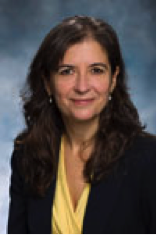
Elisa V. Bandera, MD, PhD
Professor and Chief, Cancer Epidemiology and Health Outcomes & Co-Leader, Cancer Prevention and Control, Rutgers Cancer Institute of New Jersey and Professor of Medicine, Robert Wood Johnson Medical School Dr. Bandera’s major research interests include the impact of obesity and body composition and related comorbidities and biomarkers on breast and ovarian cancer risk, treatment outcomes and survival, with a focus on cancer health disparities.
Read More
She has served as Principal Investigator in several epidemiologic cohort studies, including the Women’s Circle of Health Follow-up Study, a cohort study of breast cancer in Black/African American women and the Jersey Girl Study, which aimed to evaluate predictors of pubertal markers in girls. Dr. Bandera has served in numerous advisory boards and expert panels for several organizations, including the American Cancer Society, the National Cancer Institute, the International Agency for Research on Cancer, the American Institute for Cancer Research (AICR) and the World Cancer Research Fund International (WCRF). For over 10 years she served as a member of the International Expert Panel for the WCRF/AICR Continuous Update Project and the WCRF/AICR Third Expert Report on Diet, Nutrition, Physical Activity and Cancer: A Global Perspective, released in May, 2018. She also served as Chair of the Lifestyle Behaviors, Energy Balance and Chemoprevention Special Interest Group of the American Society of Preventive Oncology (ASPO). Dr. Bandera earned an MD degree from the University of Málaga, Spain and a PhD in Epidemiology and Community Health from the State University of New York at Buffalo, where she also completed postdoctoral training in nutrition and cancer epidemiology.
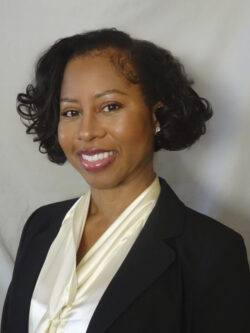
Lorae Womack Batzdorf, MD
Internal Medicine, Sutter Health Lorae Womack Batzdorf is an Internal Medicine physician with Sutter Health providing primary care in the Berkeley, CA community for the past ten years. She has held various lead roles in cardiovascular disease prevention, process improvements, and youth/ community organizing. In 1999, Lorae received her Doctor of Medicine from the Medical College of Pennsylvania-Hahnemann School of Medicine (now known as Drexel University).
Read More
Batzdorf’s clinical interests include prevention of osteoporosis, cancer, and cardiovascular diseases. The food security and hunger relief program she founded in 1989, as a UCLA undergraduate student, continues there to this day. In 2016, through the support of Jack & Jill, Inc. of America, Oakland Bay Area Chapter, Batzdorf co-established programming to teach African American teens how to become change-makers. Her passion was infectious as they too became advocates for food justice in communities of color, and on behalf of unhoused people, using the former Oakland Black Panther Party’s breakfast program/ grocery giveaway as a blueprint. After clinical residency rotations with La Cruz Roja (The Red Cross) in Central Mexico, and a sabbatical in Munich, Germany, she speaks medical Spanish and basic conversational German. Batzdorf is a compassionate primary care physician, community organizer, and baker of seriously delicious chocolate chip cookies.
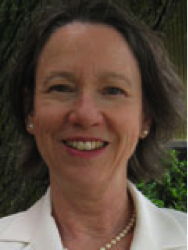
Julia Brody, PhD
Executive Director, Silent Spring Institute Julia Brody is the Executive Director of Silent Spring Institute, the only scientific research organization dedicated to advancing breast cancer prevention. Founded in 1994 by women’s health activists, Silent Spring Institute leads groundbreaking studies to identify the links between environmental chemicals and breast cancer, opening new doors to understanding the health risks associated with toxics where we live and work.
Read More
Having published more than 50 peer-reviewed scientific articles, Brody and the Institute are generating a body of evidence that supports a policy agenda for breast cancer prevention. Among Brody’s most prominent publications is a major scientific review she led on breast cancer and environmental pollutants, published in Cancer. As part of Silent Spring’s innovative exposure research, Brody pioneered the development of ethical and effective methods for reporting personal exposures to study participants when the health implications are uncertain. Her research has been supported by the National Science Foundation and National Institutes of Health and recognized with a U.S. EPA Environmental Merit Award. Brody is an adjunct assistant professor at Brown University School of Medicine. She was honored with a Science Hero Award by Breast Cancer Prevention Partners in 2003. Check out our joint blog with Dr. Brody “50 Years After Rachel Carson: There’s Still Hope“
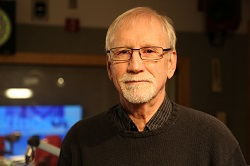
James Brophy, PhD
Adjunct Faculty Member, University of Windsor James Brophy has worked in occupational health for almost 40 years. He has a PhD in occupational and environmental health from the University of Stirling in Scotland. He is an adjacent faculty member of the Sociology Department of the University of Windsor and well as a Visiting Research Fellow at the University of Stirling.
Read More
For 18 years, Brophy worked as the executive director of the Occupational Health Clinics for Ontario Workers (OCHOW) in Windsor and then later in Sarnia Ontario. In Sarnia, which is one of the centres of the Canadian chemical industry, he helped to document and expose one of the largest cohorts of asbestos disease victims in Canadian history. During this same period, Brophy and his life and research partner, Dr. Margaret Keith, collaborated with the Aamjiwnaang First Nations community that lives adjacent to the enormous petrochemical complex in documenting a myriad of environmentally related health problems, including a skewed sex ratio. He and Margaret have led an international team in three research studies exploring occupational risk factors for breast cancer. In their most recent epidemiological study, published in 2012, they found an elevated risk of breast cancer in several industries including agriculture, metalworking, plastics manufacturing, food canning and casinos/bars. Together they have co-authored two books: Workplace Roulette: Gambling with Cancer and Barefoot Research: A Worker’s Manual for Organizing on Work Security. In 2008, they were jointly awarded the Canadian Geographic Environmental Health Gold Award for their work with the Aamjiwnaang community in Sarnia. In 2013, they were recognized by the Occupational Health Section of the American Public Health Association with the Scientific Award for their epidemiological work that examines associations between occupational exposures and breast cancer. They are members of the International Board for the journal New Solutions.
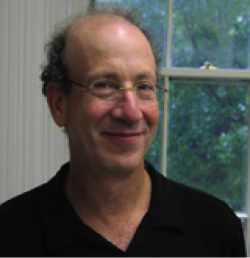
Phil Brown, PhD
University Distinguished Professor of Sociology and Health Sciences, Northeastern University Phil Brown is University Distinguished Professor of Sociology and Health Sciences at Northeastern University, where he directs the Social Science Environmental Health Research Institute that specializes in Social Science-Environmental Health collaborations and includes a National Science Foundation Training Grant to educate and train people in such collaborations.
Read More
Brown is the author of No Safe Place: Toxic Waste, Leukemia, and Community Action, and Toxic Exposures: Contested Illnesses and the Environmental Health Movement, and co-editor of Social Movements in Health, and Contested Illnesses: Citizens, Science and Health Social Movements. He studies biomonitoring and household exposure, social policy and regulation concerning flame retardants and perfluorinated compounds, reporting back data to participants, and health social movements. He is Co-Director of the Community Engagement Core and Research Translation Core for Northeastern’s Superfund Research Program PROTECT (Puerto Rico Testsite for Exploring Contamination Threats).
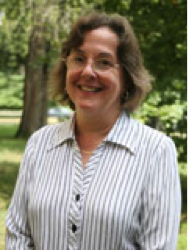
Janet Gray, PhD
Professor Emerita of Psychology/Neuroscience and the Program in Science, Technology, and Society at Vassar College For 25 years, Janet’s primary laboratory research focused on neural and peripheral metabolic mechanisms by which estrogens and mixed antiestrogens, especially tamoxifen, affect eating, body weight regulation and metabolic activity. Over the past 15 years, Janet has been interested increasingly in engaging in the intersection of environmental and women’s health issues, focusing on environmental risks and breast cancer.
Read More
Gray was the Director of the Vassar College Environmental Risks and Breast Cancer Project, a team effort that led to the production of a bilingual, interactive, user-friendly CD and website. She is the lead author of Breast Cancer Prevention Partner’s State of the Evidence: The Connection Between Breast Cancer and the Environment (2008; 2010) and the recently published ‘State of the evidence 2017; an update on the connection between breast cancer and the environment.’ (Environmental Health).
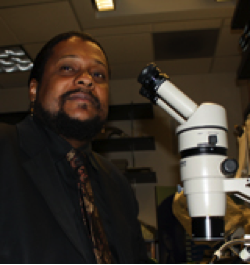
Tyrone Hayes, PhD
Professor of Integrative Biology, University of California, Berkeley Tyrone B. Hayes was born and raised in Columbia, South Carolina where he developed his love for biology. Hayes’ research focuses on developmental endocrinology with an emphasis on evolution and environmental regulation of growth and development.
Read More
For the last ten years, the role of endocrine disrupting contaminants, particularly pesticides, has been a major focus. Hayes is interested in the impact of chemical contaminants on environmental health and public health, with a specific interest in the role of pesticides in global amphibian declines and environmental justice concerns associated with targeted exposure of racial and ethnic minorities to endocrine disruptors and the role that exposure plays in health care disparities.

Jane Houlihan
National Director of Science & Health at Healthy Babies Bright Futures Jane Houlihan directs the national research and advocacy programs at hbbf.org and ewg.org focused on healthy, sustainable food, clean water, and safe consumer products. As an environmental engineer, research director, and consultant on issues of environmental health and sustainability, Jane Houlihan focuses on transforming science into resources that empower others to make healthy, sustainable choices. Houlihan is the director and co-author of “Pollution in Newborns,” a study of industrial chemicals in umbilical cord blood, and many related studies revealing the health implications of people’s everyday exposures to pollutants and pesticides.
Read More
As long-time research director at Washington-DC based Environmental Working Group, Houlihan led a diverse team of scientists and programmers to create online, data-driven guides to chemicals in tap water, sunscreen, cosmetics, bottled water, and other common consumer products. She conceived of and directed for its first eight years EWG’s Skin Deep cosmetics safety guide. Her research areas span risk assessment, chemicals policy, and green product formulation. Houlihan is an original co-founder of the national Campaign for Safe Cosmetics, and a 2005 recipient of the Breast Cancer Prevention Partners’ Science Hero Award.
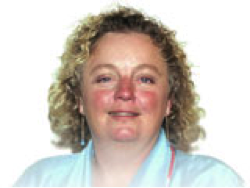
Mhel Kavanaugh-Lynch, MD, MPH
Director, California Breast Cancer Research Program Mhel Kavanaugh-Lynch is the director of the California Breast Cancer Research Program in the Office of the President at the University of California. In that role, she guides California’s research strategies and prioritizes efforts designed to bring an end to breast cancer.
Read More
This has included building programs in community-based participatory research, as well as Program-directed strategies on environmental links to, and disparities in, breast cancer. She is the PI of a National Institute of Environmental Health Sciences (NIEHS)-funded grant to build infrastructure in community-based participatory research in breast cancer disparities and environment. Kavanaugh-Lynch is a graduate of Bryn Mawr College, New York University School of Medicine and University of Washington School of Public Health. She has served on numerous National Institutes of Health (NIH) peer-review committees, as well as boards and advisory panels for NIH, the California Department of Public Health and Environmental Protection Agency, Gay and Lesbian Medical Association, Breast Cancer Prevention Partners and the American Cancer Society. She is the recipient of awards from the Gay and Lesbian Medical Association, Lesbian Health Fund, Zero Breast Cancer, Dr. Susan Love Research Foundation and National Coalition for Cancer Survivorship. Read Dr. Kavanaugh-Lynch’s guest blog
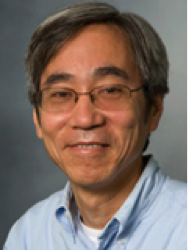
Lawrence Kushi, ScD
Director of Scientific Policy, Kaiser Permanente Northern California Division of Research Lawrence H. Kushi is Director of Scientific Policy at the Kaiser Permanente Northern California Division of Research. Prior to joining the Division of Research, Dr. Kushi was at Columbia University, where he held the Ella McCollum Vahlteich Chair in Human Nutrition in the Department of Health and Behavior Studies, Teachers College; and he was a member of the Herbert Irving Comprehensive Cancer Center at Columbia-Presbyterian Medical Center.
Read More
Dr. Kushi is internationally recognized for his expertise in nutritional epidemiology, and his research interests focus on the role of diet and nutrition in the etiology of coronary artery disease and breast and other cancers. He serves on a grant review committee for the American Cancer Society and has served on various American Cancer Society committees to develop guidelines for the dietary prevention and management of cancer. Dr. Kushi has also served on review committees for the Epidemiology and Disease Control Study Section of the National Institutes of Health, and the Integration Panel of the Breast Cancer Research Program of the U.S. Army Medical Research and Materiel Command. He formerly chaired the Food and Nutrition Section of the American Public Health Association; served on the executive committee of the American Society of Preventive Oncology; and worked at the Fred Hutchinson Cancer Research Center and the University of Minnesota School of Public Health. Dr. Kushi graduated from Amherst College and the Harvard School of Public Health.
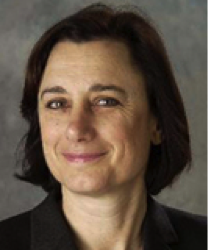
Susan Kutner, MD
Breast surgeon, Kaiser Permanente Chair, Kaiser Permanente Northern California’s Breast Care Task Force Susan Kutner is a general surgeon with a subspecialty practice in breast surgery at Santa Teresa Kaiser Hospital in San Jose, California. From 1996 to 2001, she was Chief of the Department of Surgery at Santa Teresa. Since 1995, Kutner has served as Chair of the Kaiser Permanente Northern California Breast Care Task Force.
Read More
Kutner is also a member of the Interregional Breast Care Leaders Group of the Permanente Federation, and a former member of the California Department of Health Master Plan Task Force on Breast and Cervical Cancer, the American Cancer Society Subgroup Evaluating Clinical Breast Exam, the National Quality Forum Committee on Consumer Based Measurements of Mammography Centers, and the Quality Care Advisory Board of the National Breast Cancer Coalition. She participated as a climber and team doctor for the BCPPs’ Climb Against the Odds events on Mt. Fuji in 2000, Mt. Rainier in 2005 and Mt. Shasta in 2003, 2006 and 2007. Kutner also participated in Sacred Treks: Bhutan in 2008, a benefit event for BCPP. Andrea Ravinett Martin, BCPP’s founder, honored Kutner with a Strong Voices Hero Award by BCPP in 2007. She also previously served on BCPPs’ Board of Directors.
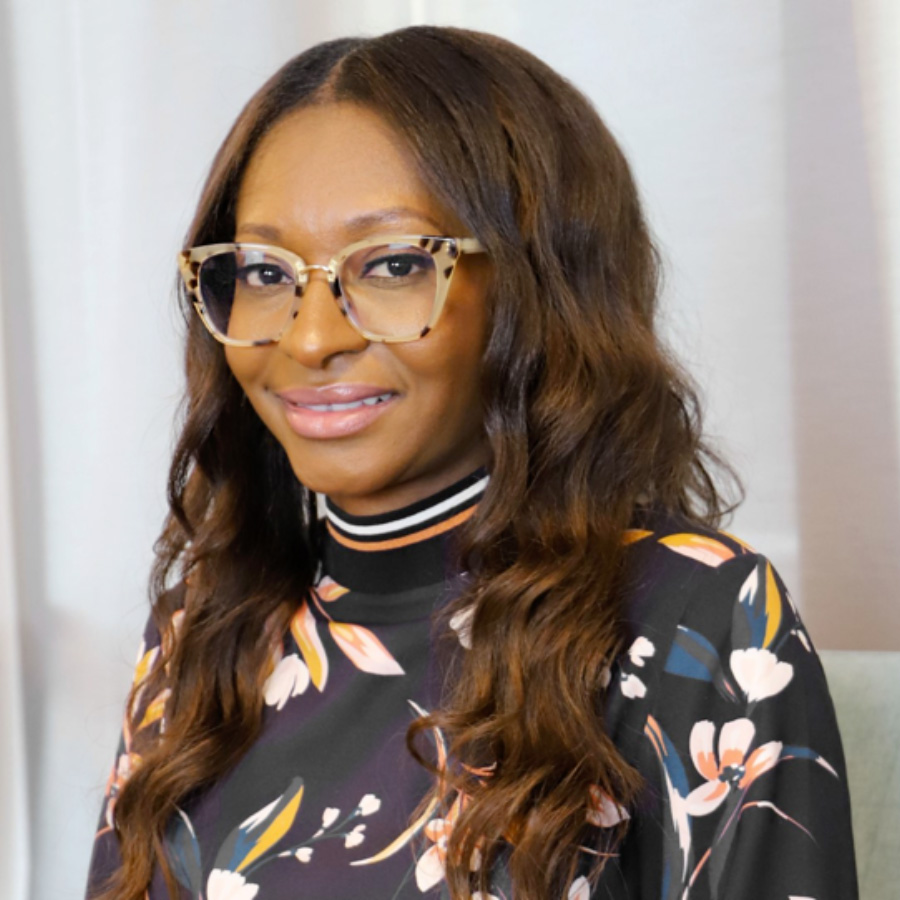
Adana Llanos, PhD, MPH
Associate Professor, Department of Epidemiology, Columbia University Mailman School of Public Health Dr. Adana Llanos is a cancer and molecular epidemiologist who is committed to understanding the molecular and sociobiologic underpinnings of breast cancer outcomes inequities.
Read More
A major focus of Dr. Llanos’ ongoing research is the examination of the various factors linked to increased breast cancer incidence at younger ages, increased incidence of more aggressive tumors, and increased breast cancer mortality among Black and African American women. Some of these factors include adiposity and adiposity-related biomarkers, epigenetics, chronic physiologic stress, personal care products (as key sources of potentially harmful chemicals), and how these factors intersect with the social environment and social determinants of health to impact breast cancer risk and outcomes.
Dr. Llanos received a Doctorate in Genetics and Human Genetics from Howard University and Master of Public Health in Epidemiology from the Ohio State University (OSU) College of Public Health. She received postdoctoral training in the Division of Oncology at the Lombardi Comprehensive Cancer Center at Georgetown University and in the Center for Population Health and Health Disparities at the OSU Comprehensive Cancer Center. Dr. Llanos has received numerous awards and honors in recognition of her research excellence and has served on numerous national and international scientific advisory panels including the National Institutes of Health, French Institut National du Cancer (French National Cancer Institute), and Susan G. Komen® Foundation.
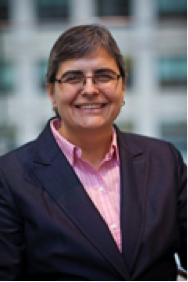
Maricel V. Maffini, PhD
Maricel Maffini is a private contractor on issues related to chemical safety, food additive regulation, science and public health. Prior to her current role she was a senior scientist in the health and environment program at the Natural Resources Defense Council (NRDC) in Washington, DC. She joined NRDC in 2013 after completing a three-year research project evaluating the U.S. food additive regulatory system at The Pew Charitable Trusts. Before joining Pew, she was an investigator at Tufts University in Boston, MA.
Read More
Maffini’s research areas included breast cancer, endocrine disruption and tissue engineering. She studied the effect of bisphenol A, or BPA, a food contact substance and estrogen mimic on the normal development of the breast in monkeys and rodents, and its link to breast cancer. Maffini has authored numerous scientific publications on endocrine disruption, mammary gland biology, carcinogenesis, conflicts of interest in food chemical safety decision-making, toxicity data gaps in chemicals used in food and packaging and the breakdowns in FDA food additive regulatory system. Dr. Maffini holds a PhD in Biological Sciences from the National University of Litoral, Santa Fe, Argentina. She was awarded several fellowships, including one from the World Bank. She was also awarded the Natalie V. Zucker Research Center for Women Scholars Award and grants from the Massachusetts Department of Public Health, the US Department of Defense and Susan G. Komen for the Cure. Check out Dr. Maffini’s interview on BPA.
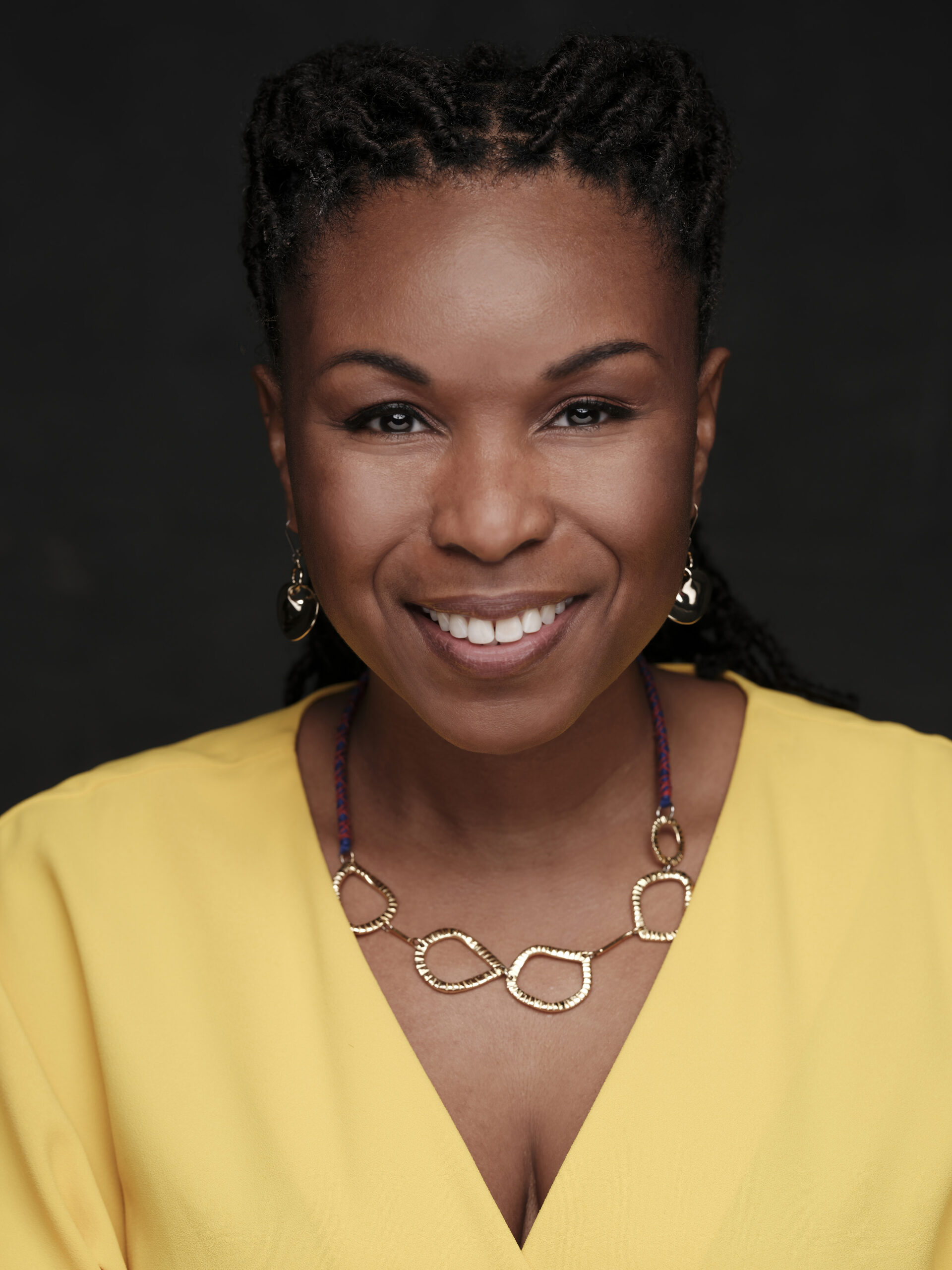
Jasmine McDonald, PhD
Assistant Professor, Department of Epidemiology, Columbia University Mailman School of Public Health Jasmine McDonald is an Assistant Professor in the Department of Epidemiology at the Mailman School of Public Health. She received her Doctorate in 2009 from the Biological Sciences in Public Health Program at Harvard University with a concentration in Immunology and Infectious Disease.
Read More
Dr. McDonald has postdoctoral training in breast cancer epidemiology from the University of Pennsylvania and Columbia University. Her research portfolio integrates individual level factors (e.g., health behaviors) and the macroenvironment (e.g. physical, social, microbial environment) with biology (e.g. endocrine disruption, epigenetic modification) to inform how these multiple levels of etiology impact breast cancer risk across the lifespan. Much of her portfolio is nested within populations that have a higher burden of cancer including those with a genetic predisposition, racial and ethnic minorities, and young women. An avid teacher and mentor, Dr. McDonald was awarded the 2021 Columbia University Teaching Award for her dedication and excellence in teaching, mentoring, and community engagement. Dr. McDonald teaches Cancer Epidemiology within the Mailman School of Public Health, is the Assistant Director of the Cancer Research, Training, and Education Center at the Herbert Irving Comprehensive Cancer Center (HICCC) and is the Co-Director of the CURE Program at the HICCC. The CURE program is catered to high school and undergraduate students from traditionally overlooked and underserved backgrounds and communities and has hosted over 40 students since 2015. Dr. McDonald also actively engages with the community from a research and educational perspective on the harmful role of endocrine disruptor chemicals within personal care products.

Rachel Morello-Frosch, PhD, MPH
Professor, University of California, Berkeley School of Public Health Rachel Morello-Frosch is a professor at the University of California, Berkeley School of Public Health and the Department of Environmental Science, Policy and Management. Her research examines race and class determinants of environmental health among diverse communities in the United States.
Read More
A focus of her current work is assessing the relationship between social inequality, psychosocial stress and how these factors may interact with chemical exposures to amplify pollution/health outcome relationships and produce environmental health inequalities. Much of her work has examined this environmental justice question in the context of ambient air pollution and indoor chemical exposures, prenatal exposures and effects on birth outcomes and children’s health, often using community-based participatory research approaches for data collection and risk communication. As part of this work she explores the scientific challenges and bioethical considerations associated with exposure assessment and chemical biomonitoring research in economically and racially marginalized communities. In collaboration with scientific colleagues and regulatory scientists, she has worked to develop scientifically valid and transparent tools for assessing the cumulative impacts of chemical and non-chemical stressors to improve regulatory decision-making and environmental policy in ways that advance environmental justice. Morello-Frosch is co-author of the book Contested Illnesses: Citizens, Science, and Health Social Movements.
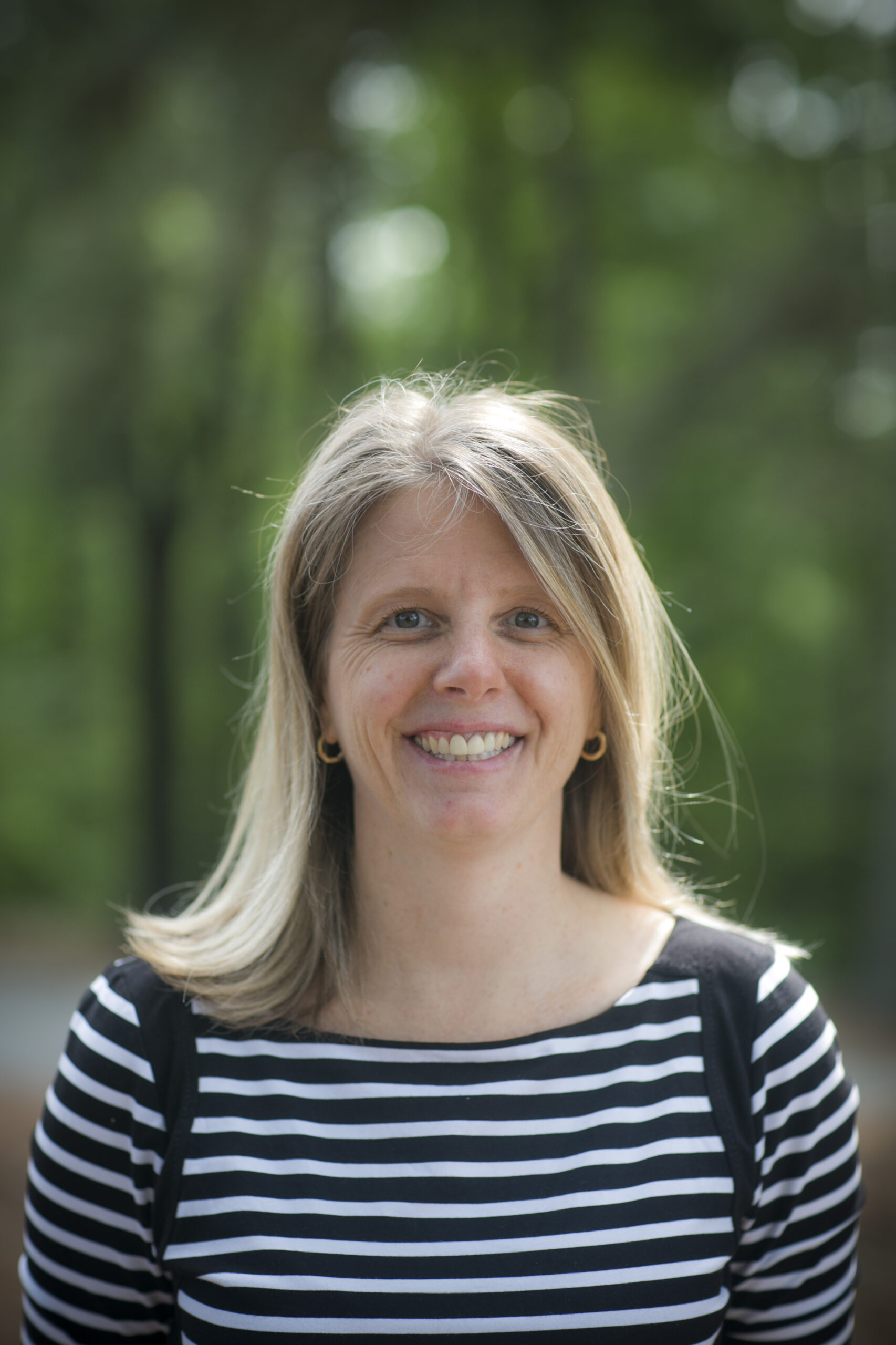
Melanie A. Pearson, PhD
Director of Community Engagement, Gangarosa Department of Environmental Health, Rollins School of Public Health, Emory University Melanie leads the community engagement for Emory University’s HERCULES Exposome Research Center and the Michigan PBB Research Registry. She collaborates with local residents, community organizations, and government officials to reduce health disparities, achieve environmental justice, and improve health for individuals and communities.
Read More
With the HERCULES Stakeholder Advisory Board, Melanie developed and implemented a highly successful community grant program, which led to tangible community benefits (Pearson 2020). In addition, she has facilitated multiple community-academic research partnerships with impactful outcomes, including an EPA Superfund Remediation, zoning ordinances in a local city, and an industry-initiated mitigation effort. Melanie also collaborates with a Michigan-state-wide community of farmers, former chemical workers, residents, and their children who continue to suffer from an industrial mishap that led to contamination of food products with polybrominated biphenyls (PBB) throughout the state. The PBB research has led to multiple important scientific contributions, including the first demonstration of earlier pubertal onset linked to in utero exposure to an endocrine-disrupting chemical, a dose-dependent risk of miscarriage in adult daughters born to mothers with high PBB levels, and an increased risk of breast cancer. The PBB Leadership Team includes academic partners, two community groups, and a district health department. This team has conducted over thirty community meetings throughout Michigan sharing research findings, responding to community concerns, and seeking community input for future research.
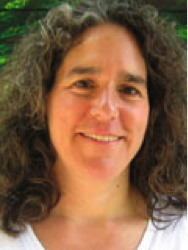
Ruthann Rudel, MS
Research Director, Silent Spring Institute Ruthann Rudel is the research director at Silent Spring Institute, where she leads major exposure and toxicology research programs focusing on hormonally active chemicals and biological mechanisms by which chemicals may influence breast cancer. Her innovations in “breast cancer toxicology” include major peer-reviewed articles that identify chemicals that cause breast tumors or alter breast development in animal models, and she is developing a database of methods for measuring these chemicals in women.
Read More
Rudel leads a program to develop breast cancer-relevant chemical safety tests for green chemistry. She also directs the Institute’s Household Exposure Study, which has been described as the “most comprehensive analysis to date” of exposures in homes and is widely cited. She has served on the U.S. National Toxicology Program Board of Scientific Counselors and is an adjunct Research Associate in the Brown University School of Medicine. Read Ruthann Rudel’s guest blog on a groundbreaking study to investigate why so many female firefighters are getting breast cancer.
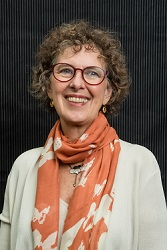
Barbara Sattler, RN, DrPH, FAAN
Professor, University of San Francisco Dr. Sattler is a Professor at the University of San Francisco and an international leader in environmental health and nursing. Prior to USF, she directed an Environmental Health Center at the University of Maryland for 23 years. She is a founding and active member of the Alliance of Nurses for Healthy Environments, an international organization that is helping to integrate environmental health into nursing education, practice, research, and policy/advocacy.
Read More
Dr. Sattler has also worked at the local level in communities facing environmental health risks associated with lead-based paint, pesticides, Superfund sites, and risks associated with gas and oil extraction. She has been an advisor to the US EPA’s Office of Child Health Protection and the National Library of Medicine for informational needs of health professionals on environmental health. Dr. Sattler has been the recipient of NIEHS, USDA, and EPA grants, as well as grants from a host of private foundations. She is the author of Environmental Health and Nursing, and a host of peer-reviewed articles. Dr. Sattler is a Registered Nurse with an MPH and DrPH from the Johns Hopkins School of Public Health. She is a Fellow in the American Academy of Nursing.
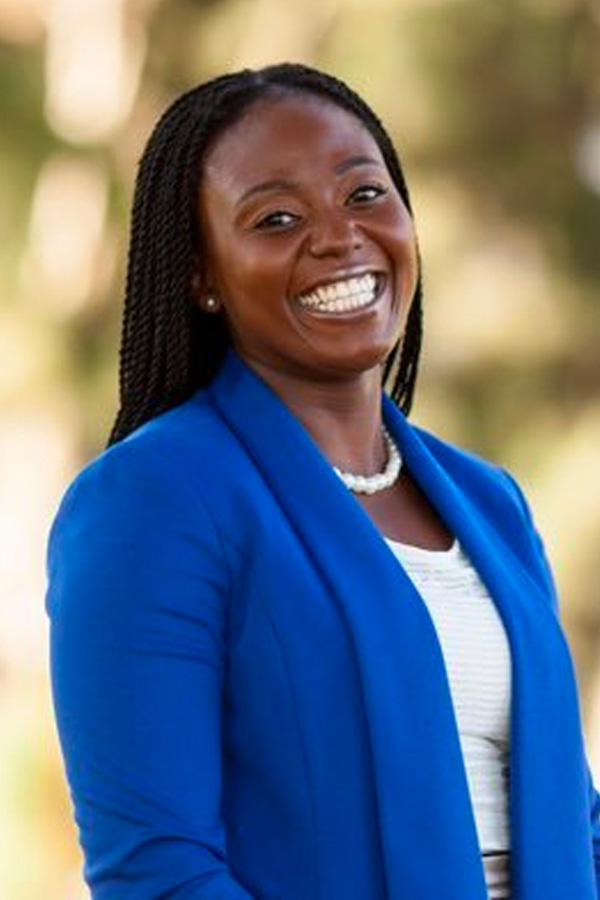
Dede K. Teteh, DrPH, MPH, CHES
Assistant Professor of Public Health, Chapman University Dr. Dede K. Teteh is a public health professional with broad experience across academia, research, policy development, and strategic communications. Through her work in community advocacy and prevention, as well as several roles at the Centers for Disease Control and Prevention, she has refined her interest in sustainable public health infrastructure and building healthier communities, particularly in under resourced populations.
Read More
Dr. Teteh is currently an Assistant Professor of Public Health at Chapman University in Southern California. Her research program, funded by the National Institutes of Health, is focused on understanding disparities in cancer survivorship through a social determinants of health lens and developing community-based interventions to improve quality of life of survivors and their families. Dr. Teteh is the founder of the Bench to Community Initiative (BCI), a community-based participatory research collaboration between community stakeholders and scientists to better understand the relationship between endocrine-disrupting chemical exposures from personal care products and breast cancer risk with an emphasis on Black women.

Eleni Tousimis, MD, FACS
Director, Cleveland Clinic Cancer Center, Indian River Hospital, Vero Beach, Florida Dr. Eleni Tousimis joined Cleveland Clinic Indian River Hospital as the Director of the Scully Welsh Cancer Center in September, 2021. She came from Georgetown University Hospital, Comprehensive Cancer Center where she was Professor of Surgery, the Director of the Breast Center, Chief of the Division of Breast Surgery, and fellowship Director of the Georgetown Breast Surgical Oncology Fellowship in Washington D.C. She also served as the 99th President of the American Medical Women’s Association in 2014.
Read More
Following her breast surgery fellowship training at Memorial Sloan Kettering Cancer Center in 2001, she completed additional specialty training in minimally invasive surgery for breast cancer at the European Institute of Oncology in Milan, Italy. Dr Tousimis was previously Associate Professor of Surgery at the Weill Cornell Medical College, New York Presbyterian Hospital where she practiced for almost ten years and served as Associate Program Director of Surgical Education. She has been recognized for her pursuit of new initiatives in breast cancer management, including nipple sparing mastectomy, partial breast radiation, and same-day discharge for mastectomy with reconstruction.
She has received numerous awards and has held leadership positions in several professional societies. Dr. Tousimis has been recognized as a Castle Connolly’s Top Doctors, Top Surgeons, Best Doctors and Washingtonian Top Doctors. She received an Achievement Award from the City of New York for her surgical skill, compassion and service to the people of New York as well as the Distinguished Female Physician Award for her Outstanding Accomplishments in the field of Breast Surgery in 2015.
Because of her compassion and commitment to patient care, she was recognized and chosen in 2016 as the personal physician of the Dalai Lama when he visited Washington D.C. The Dalai Lama’s emphasis on a broad education and environmental conservation influenced her to go back to school and complete an MBA and a sustainability degree at MIT in 2020. She is passionate about hospital sustainability focusing on the staff, the patient experience and environmental sustainability in the operating room.
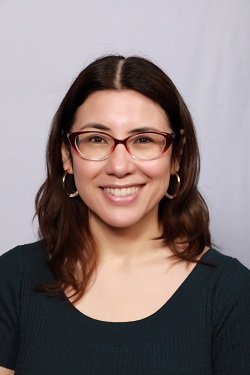
Lindsey S. Treviño, PhD
Assistant Professor, Division of Health Equities and Department of Population Sciences at City of Hope Current research projects in Treviño’s laboratory are focused on understanding the molecular mechanisms underlying the link between 1) developmental exposure to the endocrine-disrupting compounds (EDCs) bisphenol S and F (bisphenol A substitutes) and development of fatty liver disease (a risk factor for liver cancer) in Hispanic/Latinx children/adolescents, and 2) exposure to parabens, a class of EDCs typically found in personal care products and development/progression of breast cancer in Black women.
Read More
Treviño is particularly interested in the role of EDC-mediated epigenomic reprogramming in these contexts. She previously demonstrated that developmental exposure to the endocrine-disrupting compound bisphenol A accelerated epigenomic aging in the developing liver and caused metabolic dysfunction in adulthood (Nature Communications 2020). These data highlight the importance of reducing adverse EDC exposures and preventing epigenomic reprogramming and its effects in target tissues, particularly during critical windows of susceptibility. Understanding the molecular mechanisms underlying epigenetic reprogramming may provide potential prevention strategies (for outreach and policy changes) and/or therapeutic targets for precision medicine approaches in high-risk populations.
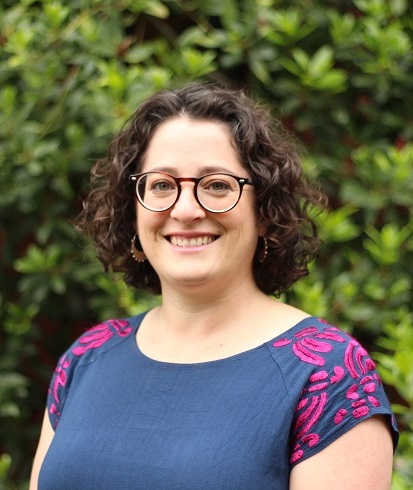
Jessica Trowbridge, MPH, PhD
Research Scientist at the Program Reproductive Health and the Environment at the University of California, San Francisco Dr. Jessica Trowbridge’s curiosity about the impact of exposure to environmental chemicals on health came out of her experience growing up binationally and experiencing the environmental burdens of pollution in her communities in central Mexico and Richmond, California.
Read More
Dr. Trowbridge completed her doctoral research with the Women Workers Biomonitoring collaborative, a community-based participatory research study with women firefighters in San Francisco. She characterized occupational exposure to suspected and possible environmental breast carcinogens including perfluoroalkyl substances (PFAS) and organophosphate flame retardants (OPFR) and thyroid hormone disruption in the women firefighters. Dr. Trowbridge’s current research explores prenatal exposure to toxic environmental chemicals and infant neurodevelopment. Through her research, Dr. Trowbridge aims to identify opportunities for education and prevention to reduce toxic exposures in vulnerable populations including workers, pregnant people, and children. Dr. Trowbridge completed her MPH and PhD in Environmental Health Sciences at the University of California, Berkeley. She is a research scientist at the Program Reproductive Health and the Environment (PRHE) at the University of California, San Francisco.
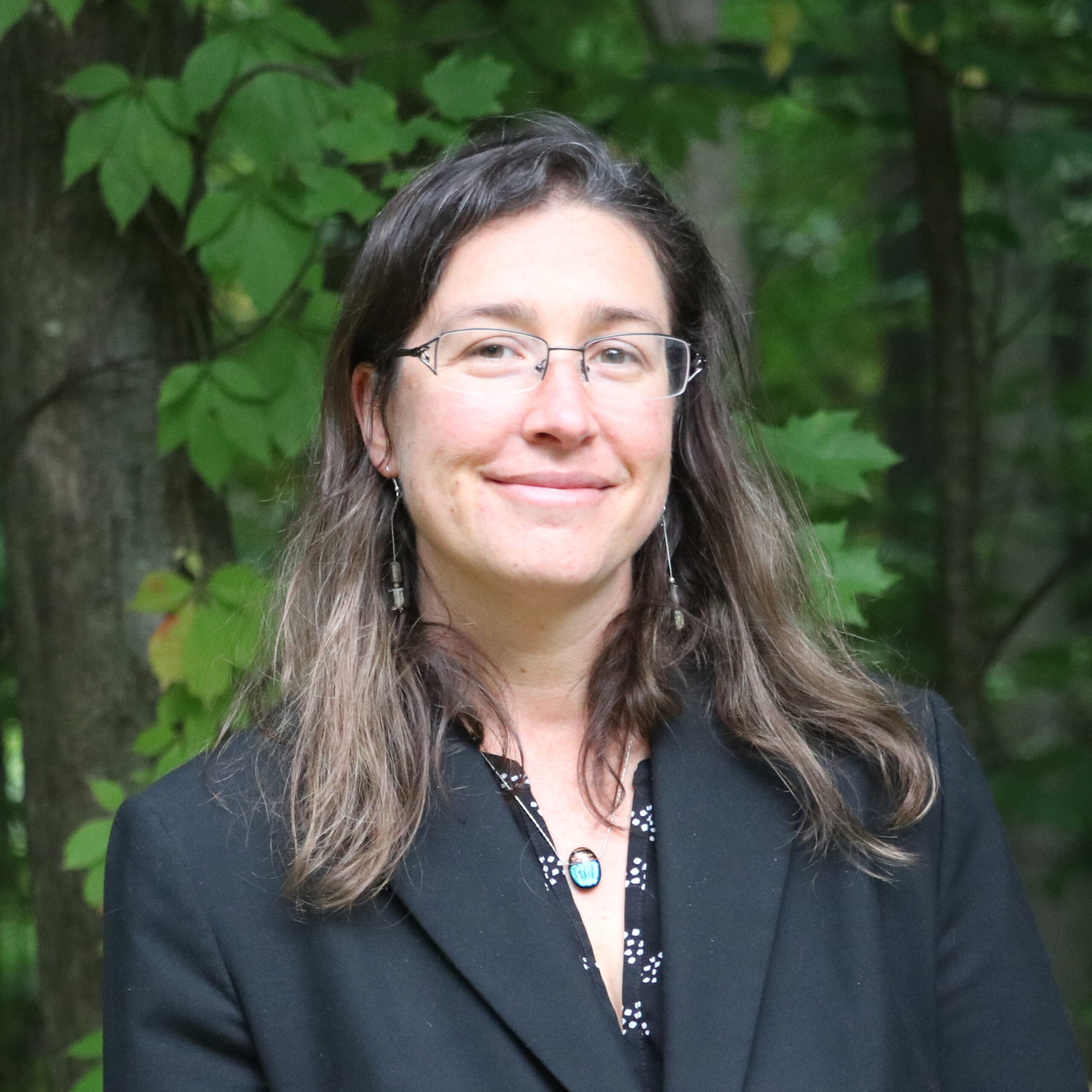
Laura Vandenberg, PhD
Associate Vice Chancellor of Research & Engagement, University of Massachusetts – Amherst Laura Vandenberg is a Professor in the Department of Environmental Health Sciences at the University of Massachusetts Amherst School of Public Health and Health Sciences. Trained as an endocrinologist and developmental biologist, Dr. Vandenberg’s laboratory research focuses on how low level exposures to endocrine disrupting chemicals, and in particular compounds that mimic estrogens, can induce disease.
Read More
Vandenberg is especially interested in the effects of estrogenic compounds on breast health including breast development, lactation, and breast cancer risk. Her lab works to determine when individuals are most susceptible to these exposures. Outside of the lab, her research critically evaluates issues that affect risk and hazard assessments for endocrine disrupting chemicals including low dose effects, critical windows of susceptibility, routes of exposure, and testing methods. Dr. Vandenberg is an author on more than 115 peer reviewed papers and 15 book chapters.
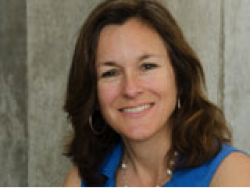
Tracey J. Woodruff, PhD, MPH
Director, Program on Reproductive Health and the Environment, University of California, San Francisco Professor, Department of Obstetrics, Gynecology, and Reproductive Sciences and Philip R. Lee Institute for Health Policy Studies, UCSF Dr. Tracey Woodruff is a professor in the Department of Obstetrics, Gynecology, and Reproductive Sciences and Philip R. Lee Institute for Health Policy Studies at the University of California, San Francisco and the director of the Program on Reproductive Health and the Environment.
Read More
She has done extensive research and policy development on environmental health issues, with a particular emphasis on early-life development. Her research areas include evaluating prenatal exposures to environmental chemicals and related adverse pregnancy outcomes, and characterizing developmental risks. She has authored numerous scientific publications and book chapters. She was previously at the U.S. EPA, where she was a senior scientist and policy advisor in the Office of Policy, and author of numerous government documents. She is an associate editor of Environmental Health Perspectives. Woodruff received her PhD in bioengineering from the University of California, Berkeley and San Francisco, and her MPH in environmental health from the University of California, Berkeley. She completed a Pew Postdoctoral Fellowship at the University of California, San Francisco, Institute for Health Policy Studies.
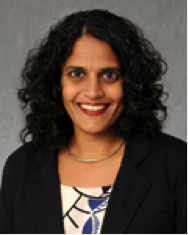
Ami Zota, ScD
Assistant Professor, Department of Environmental and Occupational Health, George Washington University School of Public Health and Health Services Dr. Ami Zota is an assistant professor in the Department of Environmental and Occupational Health at the George Washington University School of Public Health and Health Services.
Read More
Dr. Zota’s work focuses on using innovative, multi-disciplinary methods to: 1) identify sources and consequences of human exposure to environmental contaminants; 2) illustrate how environmental hazards may interact with social disadvantage and psychosocial stressors to exacerbate health disparities; and 3) evaluate the impact of NGO and regulatory action on emerging environmental health problems. Much of her current research involves human exposure science and reproductive epidemiology studies of endocrine disrupting chemicals, such as flame retardants, phthalates, BPA, and others. She holds a Bachelor of Science in Public Health from University of North Carolina – Chapel Hill, as well as an MS and Doctor of Science (ScD) in Environmental Health from the Harvard School of Public Health. Check out our interview with Dr. Zotaon on her study tracking levels of phthalate exposure in people.
FEATURED VIDEO
BCPP: Exposing the Cause is the Cure
We're preventing breast cancer before it starts by eliminating our exposure to toxic chemicals and radiation.
